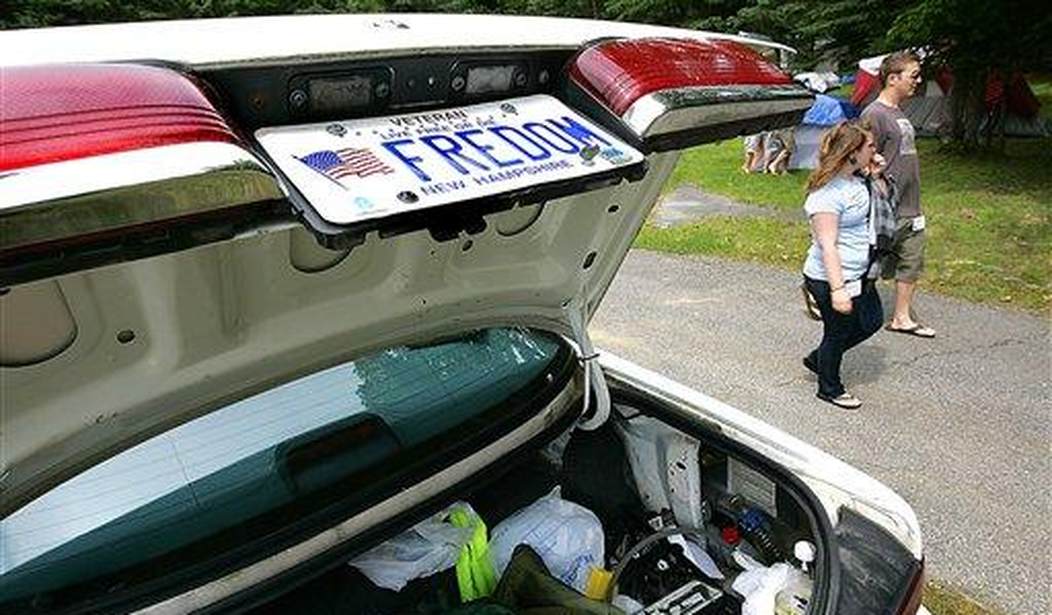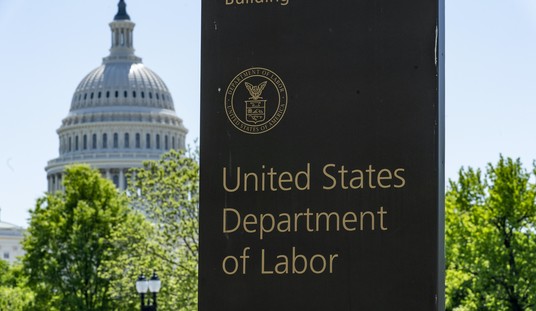New Hampshire joins the ranks of Texas, Alaska, Vermont, and Idaho in an effort to establish constitutional measures that allow for secession from the union. The national divorce that Georgia Rep. Marjorie Taylor Greene alluded to last month appears to be garnering support in the most unlikely of places. After an attempt in the early part of the year, the "Live Free or Die" state is once again crafting legislation to explore how to be free from the bonds of the federal government.
State Rep Jason Gerhard has sponsored a clever bill that would allow voters to amend the New Hampshire Constitution, so that the state would secede from the US should the national debt reach $40 trillion. The debt is at $33 trillion & rising quicklyhttps://t.co/VH0Pq7Qell
— state secession (@state_secession) October 12, 2023
For the first time in the state’s recorded history, legislators in the New Hampshire House of Representatives have filed two bills aimed at giving voters the opportunity to vote on whether or not New Hampshire will peacefully secede from the United States of America.
State Representative Matthew Santonastaso (R – Cheshire 18) has sponsored a groundbreaking new bill that will force the creation of a Secession Study Committee in the Granite State. This comes on the heels of a bill filed recently by State Rep. Jason Gerhard (R – Merrimack 25) that if passed, would allow voters to amend the New Hampshire Constitution, declaring that the state will secede from the United States should the national debt reach a staggering $40 trillion.
The Secession Study Committee, as envisioned by the bill, won’t just be a cursory look into New Hampshire declaring its peaceful independence from the United States. It will delve into understanding the multifaceted implications, the potential benefits, and the challenges that New Hampshire might face if it were to consider seceding from the Union. This initiative underscores the urgency and importance of having a well-informed discussion on the subject.
Representative Santonastaso stated, “Given the current challenges at the federal level and potential unforeseen changes in the national landscape, it’s essential to study the feasibility of an independent New Hampshire. This effort is not about neglecting our shared history; it’s about proactive planning and ensuring our state shall persist under any circumstance.”
I sat down with State Rep. Santonastaso and Free State Project President Emeritus Carla Gericke to discuss this impending legislation and what it might entail.
WATCH:
The secession committee bill language can be found here. Both bills are scheduled for the 2024 legislative session, which starts in January. The way the New Hampshire legislature works is that when the session begins, the bills will be assigned a number, receive a committee hearing, and all the documentation and formalities. According to the legislators, every bill gets both a committee hearing and a floor hearing. In order for the bills to pass and then be presented to the Granite State citizens, they must reach a threshold of above 60 percent. CR CA32, that first secession bill presented in March, failed to reach this threshold. Out of the 400 legislators in New Hampshire, only 13 voted for it.
Santonastaso was among the 13 who voted to approve the bill. He said of this effort:
The actual truth is in secret, a lot of people support it. I think we would have had 80 people vote for it. If they weren't worried about their.. the political cost. So everyone whispers to me in the bathroom that they think it's awesome. But then, when it's time to vote for the thing they're going to, they're either not there or they just vote the other way.
But there appears to be enough discontent among Granite Staters with the federal government for them to take another bite at the apple. While the possibility for the bills' passage is minuscule, the circumstances that fuel this drive toward a national divorce continue to prime the pump. Our national debt is at 33 trillion and continues to climb. But the present burden for Americans is their inability to sustain themselves and stave off personal debt; largely due to federal mismanagement and overreach.
As my colleague Bonchie wrote,
Americans want affordable food and the ability to buy property and live the American dream. They don't care about fluffed-up jobs report propped up by overblown government spending. I've said it a dozen times if I've said it once: You can not lie to people about what's in their bank account.
Retirements are down, prices are up, and wages are lagging. That's what "Bidenomics" is. There's nothing positive about it. Rather, it's been a catch-all term for just how horrible the current economic malaise is. Worse is that there's no end in sight. How long will it take for interest rates to recede to affordable levels? Five years? A decade? And don't hold your breath on prices coming down. At best, we'll continue to see a slowing in their growth.
WATCH:
Gericke touted the smart language in the bill that triggers a secession move.
But this time the sponsor [Rep. Jason Gerhard] put in a triggering event, so he said, instead of it just being a blanket, Hey, we wanna go our own way if enough people vote for it, he said, “Hey, how about this time we say if the federal government's national debt reaches $40 trillion—which is an unfathomable amount, a lot of money. We're at 33 trillion right now, and the one we never talk about anymore is unfunded liabilities. That number is 136 trillion dollars now. And so, when you look at this, you have to go, hey, maybe we should honestly start to sit down and to objectively look truthfully at the problems we are facing and try and come up with some solutions.
Others in and out of the legislature have no interest in entertaining a solution of divestiture from the federal fold. The now former State Rep. Brodie Deshaies acknowledged that legitimate distaste for federal taxation and power mongering is behind the impetus of this movement but still testified in front of the State-Federal Relations and Veteran Affairs Committee in opposition to CACR 32.
Deshaies does acknowledge that people in New Hampshire today are upset about the amount of powers the federal government claims to have over them. He says “New Hampshire lost some of that sovereignty because we accepted federal dollars and we ceded a number of responsibilities. Now, we’re still sovereign, technically, over this. We can, through the constitutional process, freely take back those powers. It just means we’re going to have to be giving up the carrots. We took the carrot, we get the stick.”
A resident named Karen Steele filed a motion to disqualify Santonastaso and the 12 other state reps from running for office.
Speaking before the Ballot Law Commission Wednesday, Steele cited the 14th Amendment of the U.S. Constitution, which states that people who have sworn an oath to the Constitution -- as state lawmakers do -- are disqualified from holding office if they engage in insurrection or rebellion.
"These secessionists are not eligible to hold office," Steele said.
The commission did not agree with her and dismissed the complaint. Gericke hopes that other Granite Staters will have more of a desire to explore the possibility and look at who truly benefits from a move to divest. Gericke is also open to other measures that will hold the federal government accountable without requiring a separation.
WATCH:
New Hampshire is a state of a little over 1.3 million. The state exports a record $7.3 billion in domestic goods and, as Gericke stated, pays more into the federal coffers than it gets back. In terms of economics, they can arguably stand on their own. Should the legislature vote these two bills through, the people will have an opportunity to explore whether they wish to.














Join the conversation as a VIP Member